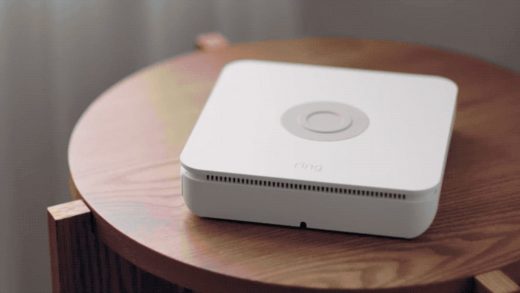Amazon is trying to scare you into buying its new indoor security drone
In the span of about 45 minutes on Thursday, Amazon announced 17 new products and services, including a slew of Echo speakers, Ring security devices, and Fire TV streamers.
The rapid-fire video presentation had a lot to take in, but through it all, there was one clear, recurring theme: Danger is everywhere; Amazon can make you safe again. Amazon’s vision for the smart home is an increasingly fearful one, in which intruders must be persistently fended off. Even previously innocent products like the Echo speaker now play a key role Amazon’s ever-expanding security push.
Sadly, it is a fitting vision for our current moment of fear and divisiveness.
Drones, alarms, and virtual barking dogs
The wildest announcement of the day, by far, came from Ring, the Amazon subsidiary best known for blanketing the country in doorbell cameras (and giving police departments convenient ways to obtain the footage). Next year, Ring will release a $250 autonomous security drone called the Ring Always Home, which will fly around inside your house to capture surveillance footage. The idea is to monitor for security or safety issues while you’re not home, even in places where you haven’t installed one of Ring’s non-airborne security cameras.
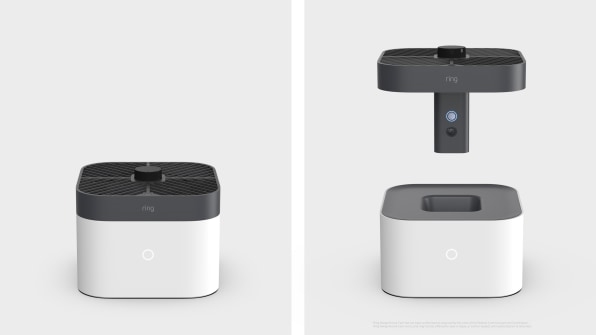
[Photo: Amazon]
At the same time, Ring is expanding its security purview to more places. The company’s other plans for 2021 include two new products for cars: The $60 Ring Car Alarm plugs into the OBD-II port on most vehicles to monitor for break-ins and other disturbances, and it has a siren that users can activate remotely, while the $200 Ring Car Cam will capture footage from the car during emergencies. Ring also wants to partner with carmakers, and is giving them tools to build these kinds of features directly into their vehicles. The company announced a $30 mailbox motion sensor as well, so you can get the jump on potential mail thieves.
The push to monitor everything isn’t limited to Ring, either. Amazon is also turning its Echo devices into sharper virtual watchdogs by launching a new $5 per month subscription service called Alexa Guard Plus that builds on Echo speakers’ ability to listen for trouble. Whereas Alexa Guard only monitored for sounds of broken glass or alarms, Guard Plus detects other kinds of noises, like footsteps and doors opening. And instead of just sending an alert to your phone, Guard Plus can call a “helpline” service that connects emergency services or security providers on your behalf.
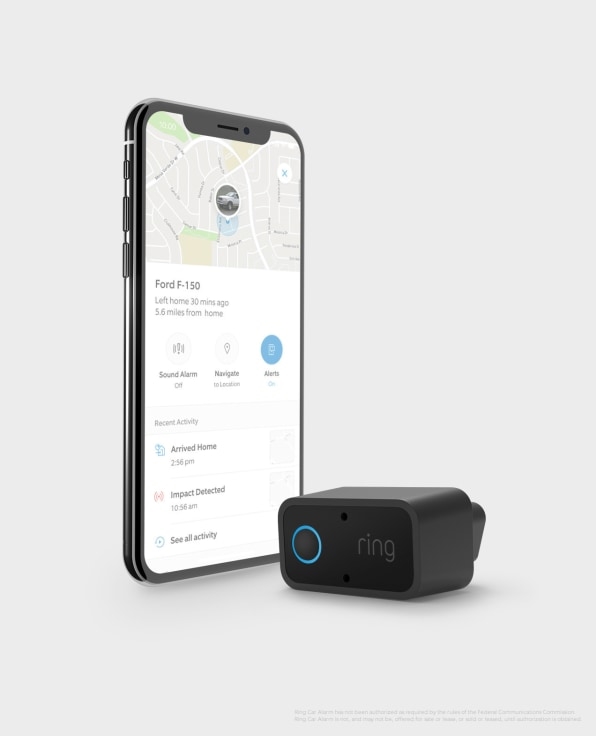
[Photo: Amazon]
Later this year, as part of the Alexa Guard service, Echo speakers will be able to blare an alarm or play the sound of barking dogs when a connected security camera detects motion outside. Amazon’s new Echo Show 10 smart display is getting in on the surveillance game as well, with a swiveling screen that can monitor for intruders when you’re not home.
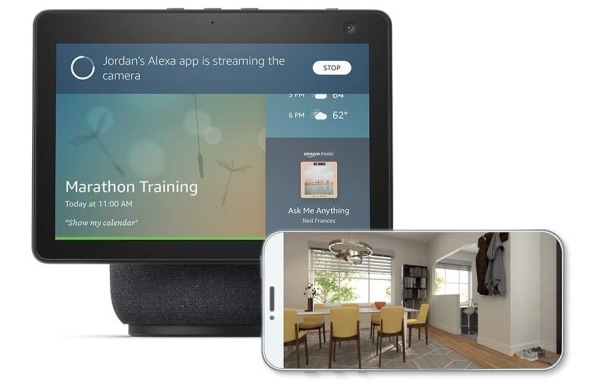
[Photo: Amazon]
On top of all that, Amazon is conscripting more homes into its Sidewalk network, which uses Bluetooth and other wireless signals to connect an entire neighborhood’s devices together. One of Amazon’s stated use cases for this technology is to extend the range of Ring security cameras well beyond the boundaries of a typical home’s Wi-Fi networks. This week, Amazon announced that it will start prompting users to enable Sidewalk on their existing Echo speakers and Ring cameras. This will inevitably push surveillance cameras into places they weren’t reaching before.
All of this results in a vision for technology that’s distinctively more paranoid than that of other tech giants like Apple and Google. While those companies have their own forays into home security—Apple with its HomeKit system, and Google with its Nest alarm and cameras—Amazon seems to be turning security into the foundation of its ecosystem. No other major tech company is pushing so many kinds of security products in so many different areas.
More fear to sell
The issue with all of these new security products is not necessarily about personal privacy. To Amazon’s credit, the company announced several new privacy initiatives on Thursday. Those include future support for end-to-end encryption in Ring cameras and a new option to have Alexa immediately delete your voice recordings after processing them, rather than storing them for three months or 18 months. Amazon clearly recognizes that giving users more choice and control in these areas helps tamp down consumer backlash.
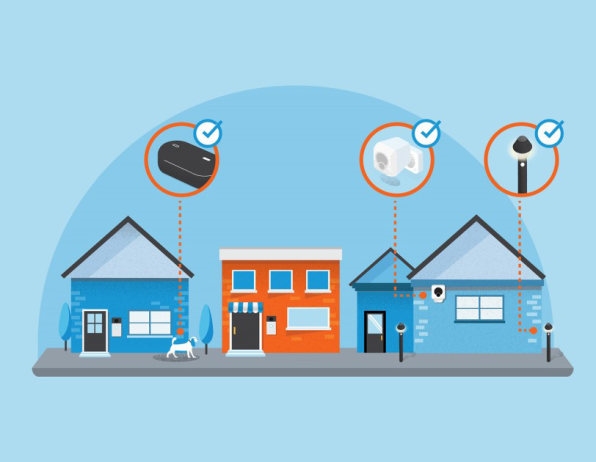
[Image: Amazon]
The real danger is a bit more insidious: We already perceive more crime than there actually is, and critics of products like Ring have argued that its persistent surveillance raises people’s suspicion levels and feeds into their prejudices. Amazon is now tapping into those anxieties to build out its ecosystem, which involves not just eyes and ears in your home, but alarms in your car and an ever-expanding network of self-surveilling neighborhoods.
Put another way, if the smart speaker you bought for playing music or checking the weather starts suggesting that you’re unsafe without its help, eventually you might start to believe it.
Correction: An earlier version of this story misstated the price of Amazon’s Car Cam, which will cost $200.
Fast Company , Read Full Story
(75)

